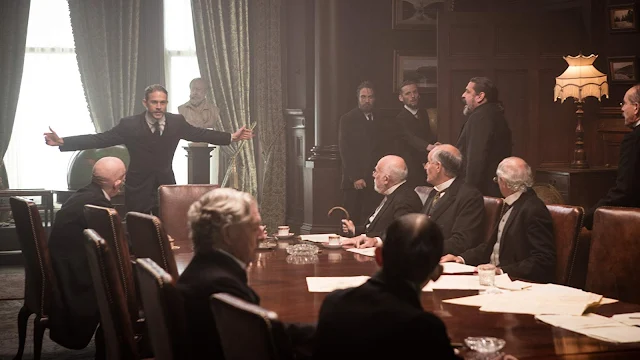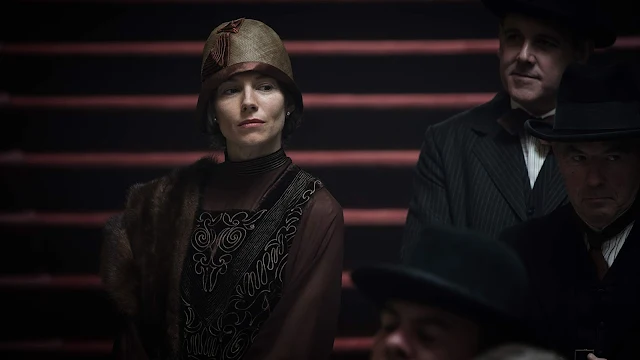 |
| Adam Sandler in Uncut Gems |
Hyperactive, motormouthed Howard Ratner (Adam Sandler) is trying to make it big in the bling trade, purveying jewelry, watches, and expensive geegaws to musicians, athletes, and the nouveau riche. But he keeps getting sidetracked by his own gambling and speculative ventures, the central one in Uncut Gems being an Ethiopian uncut black opal. The film begins in fact with a severely wounded Ethiopian miner at the site of the discovery of the opal. We then peer into the depths of the large uncut gemstone, a mysterious cosmic vision that eventually segues into the interior of Howard himself as he undergoes a colonoscopy. It's a striking journey, to be sure, and one that sets the tone for a movie that teeters between comedy and social consciousness, never quite resolving itself. The movie is held together by Sandler's performance, which seems to have taken many critics by surprise, even though he's done good work before for directors like James L. Brooks (Spanglish, 2004) and Paul Thomas Anderson (Punch-Drunk Love, 2002). Spiraling into a chaos of his own making, taking his family and his mistress with him, Howard lives on the brink -- and dies there. The chief problem with the film is ending it: Howard can't be allowed to triumph, although he sort of does, or any hope of satisfying the demand for even poetic justice goes out the window. But the abruptness of his anticlimactic comeuppance seems just as arbitrary as a "happy ending" would have been. Better, I think, to have let Howard hustle his way onward into an ever more chaotic future. Worth watching for yet another dark safari conducted by the Safdie brothers, and for a career redefining performance by Sandler.




























